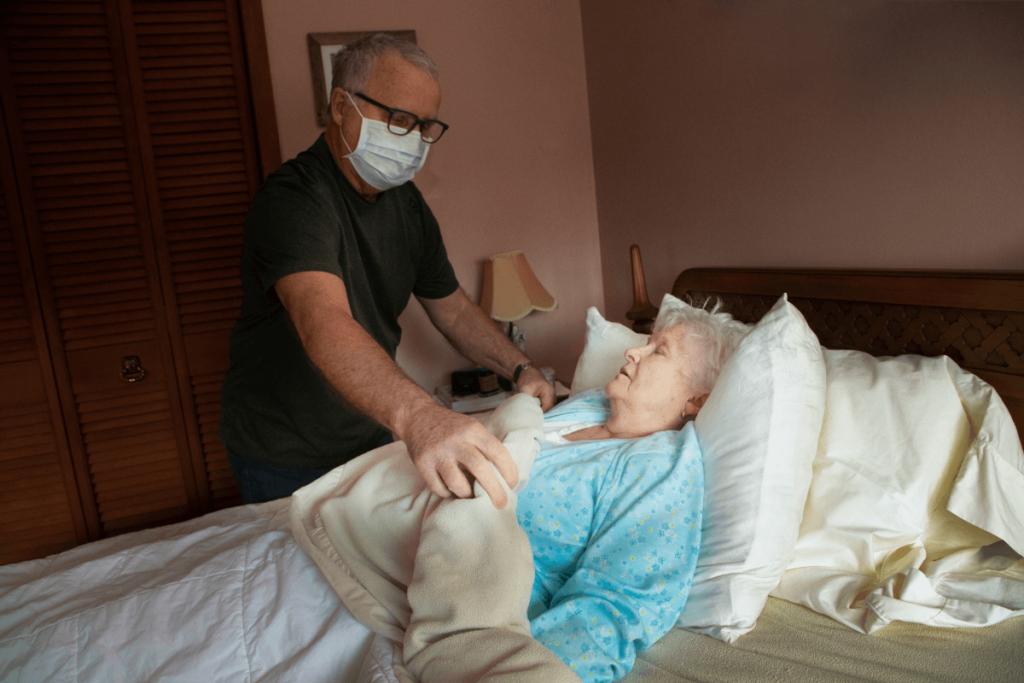What Does Home Health Do for You?
Home health care makes it easier for your loved one to enjoy a high quality of life while remaining at home. If you have a parent, grandparent, aunt or uncle who doesn’t want to burden you with the entirety of care yet doesn’t want to transition to a nursing home or an assisted living facility, home health care is the answer.
Home health care brings a home health specialist directly into the home to help an aging relative remain in his or her house for as long as possible Both short-term and long-term home health care service are available for each patient’s unique needs. Opt for home health care and you will agree you loved one’s quality of life improves, you feel less stressed and enjoy an invaluable peace of mind knowing your loved one will receive scheduled care tailored to his or her needs. Above all, improved comfort and quality of life are the primary reasons for home health care.
Requirements to Receive Home Health Care
More people qualify for home health care than initially assumed. Whether you are financially needy, middle class or in another financial situation, there is a chance you will qualify for home health care. Medicare covers the cost of skilled services including therapy and nursing in the home. The coverage is applicable to situations where a skilled need is present and the patient in question is homebound. However, specific requirements must be met to receive such benefits. Those requirements include being under the care of a doctor, receiving services under a care plan and the necessity of skilled nursing care/physical therapy/speech language therapy.
It is also required that the home health company in question is approved through Medicare. If homebound, the treating physician is to certify the fact that the patient is homebound. Homebound means difficulty leaving the house without the use of a transportation device such as a wheelchair, walker, cane, crutches or other item. As long as you meet these requirements, you will qualify for coverage through Medicare.
Criteria for Home Health Care Services
Both Medicare Part A and Part B are relevant. Part A of Medicare is commonly thought of as hospital insurance. Alternatively, Medicare part B is more thought of as medical insurance. The coverages are applicable to home health services including skilled nursing care and home health aide care as long as other skilled services such as nursing are provided at the same point in time. However, Medicare does not pay for ‘round the clock care in the home, meals delivered to the home, homemaker service, personal care or assistance with the activities of daily living.
As long as you are covered with Part A and/or Part B and meet specific conditions such as being under the care of a doctor and receiving services under the plan of care formed by a doctor, you will likely qualify for home health care services. However, you must also be homebound and certify that intermittent skilled nursing care and/or therapy services are necessary.
What is Skilled Nursing Care in Home Health?
In the context of home health care, skilled nursing is that provided for a patient who needs treatment from a specific type of licensed nurse. Skilled home health nurse care maintains and restores health and functionality without forcing the patient to be confined to a hospital or transition to another care facility. Rather, the patient remains in the comfort of home with the nurse providing skilled care.
How is Homebound Different from Bedbound?
Though homebound and bedbound sound familiar, they are not exactly the same. An individual who is homebound cannot leave the house without difficulty. Home health services are available through Medicare to patients who prove they are homebound as indicated by a physician. The Medicare criteria for being homebound is that the patient cannot leave the home without assistance and that the assistance in question must be from another individual or from a mobility device such as a walker. Furthermore, if the treating physician insists the patient’s condition will decrease if leaving home, that doctor might consider the patient to be homebound.

How to Apply for Home Health Care?
If you or a loved one do not want to leave the home yet still want to receive high-quality medical care, you should consider the merits of home health services. Living with dignity while in the comfort of home makes your quality of life that much higher. You can apply for home health care in accordance with your coverage through Medicare or Medicaid. Also, if you are covered through private health insurance, reach out to that provider for guidance on applying for home health care programs.
In general, the process of applying for home health care consists of three primary steps in checking eligibility in accordance with insurance coverage, obtaining a professional referral and determining the services necessary. Furthermore, the in-home care services provider must be approved to provide the in-home care through Medicare, Medicaid or another insurance provider prior to the point at which service begins within the home.
There is a common misconception that only those enrolled in Medicaid or Medicare will quality for home health care services. In Home-Aide Services and other programs are available to help people maintain their dignity while living at home. When in doubt, check with your county’s social service department for details about the home health care services application process. As long as you have a genuine need for in-home care and have applicable coverage, it should not take too long to secure in-home health care service that helps you age in comfort within your own home.


